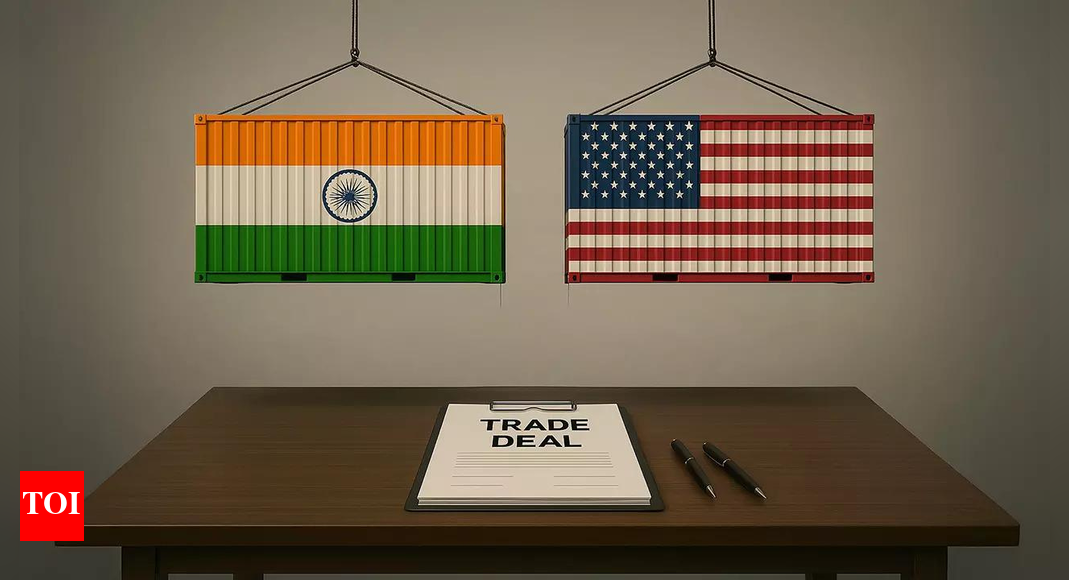Accelerating India’s Trade Strategy: Insights from EAC-PM Chairman Mahendra Dev
In a recent address, Mahendra Dev, the Chairman of the Economic Advisory Council to the Prime Minister (EAC-PM), emphasized the necessity for India to speed up its free trade agreement (FTA) negotiations, broaden its export horizons, and maintain robust communication with the United States to finalize a Bilateral Trade Agreement (BTA). His remarks highlight the challenges and opportunities facing India amidst current global trade dynamics.
The Urgency for Free Trade Agreements
Dev’s call for expedited FTA negotiations stems from a recognition of India’s underutilized export potential. He argued that the nation’s trade policy must pivot towards diversifying exports to emerging markets in Asia, Latin America, Africa, and select developed nations. This shift would not only help mitigate the impacts of global protectionist trends but also bolster India’s economic positioning on the international stage.
Navigating Global Protectionism
In the contemporary trade landscape, protectionism has been on the rise, contributing to shrinking international trade volumes. Dev emphasized that a rule-based trading environment, as promoted by the World Trade Organization (WTO), is far superior to the scattered and inconsistent protectionist policies observed worldwide. His views underscore the importance of maintaining inclusive and fair trade practices to ensure sustained economic growth.
Tensions with the United States
Dev’s statements come at a time when India faces increased tensions with the U.S., particularly following American sanctions on major Russian oil producers, namely Rosneft and Lukoil. This geopolitical maneuver puts Indian exports in a precarious position, subjected to tariffs that collectively amount to nearly 50% when entering the U.S. market. The reciprocal nature of these tariffs highlights the fragility of India’s trade relations with a key partner.
The Role of Export Growth in Economic Development
One of the central themes of Dev’s lecture was the importance of export growth as a key driver for sustained economic expansion. He noted that no emerging market of India’s scale has achieved consistent growth of 7% or 8% annually without strong export performance. This insight sheds light on the fundamental role that robust international trade plays in fostering overall economic resilience.
Strengthening the Manufacturing Sector
Dev pointed out the critical need for establishing a more robust base of medium-sized manufacturing firms within India. Currently, a significant portion of Indian enterprises are small, often employing fewer than ten workers. Developing medium-sized enterprises that can employ between 200 and 500 workers is essential for creating employment opportunities and boosting productivity.
Historical Economic Context
Reflecting on India’s historical economic stance, Dev mentioned that the country once boasted a 25% share of global GDP in 1700 AD. He shared an optimistic projection that, by 2043, India could reclaim a similar share of the world economy. Achieving this goal will depend on heightened investment levels and increased productivity.
The Need for Investment
To support an annual growth rate of around 7%, Dev stressed that India’s investment must rise from the current 31-32% of GDP to about 34-35%. Encouraging private sector investment is pivotal, particularly as economic challenges such as the twin balance sheet problem appear to be resolved.
The Multiplier Effect of Government Expenditure
Dev also highlighted the rising capital expenditure (capex) by the government, which is expected to have a multiplier effect on the economy. By boosting rural and urban demand, this government strategy can help trigger the next cycle of investment, propelling economic growth further.
Resilience in Economic Performance
Looking back on the economic setbacks faced by India in 2013, when it was labeled one of the “Fragile Five” economies, Dev stated that India has since emerged with renewed resilience. He articulated a sense of pride in the nation’s recovery, presenting India as the fastest-growing major economy today. This narrative of resilience serves to inspire confidence in future economic prospects.
The insights shared by Mahendra Dev create a compelling case for a strategic reevaluation of India’s trade and economic policies, urging the nation to expedite trade negotiations and foster a more robust export ecosystem.



